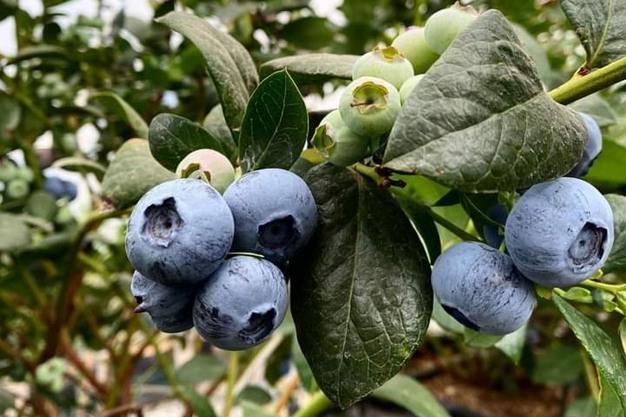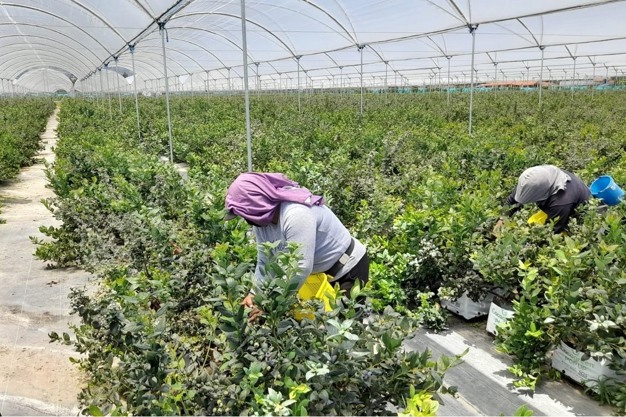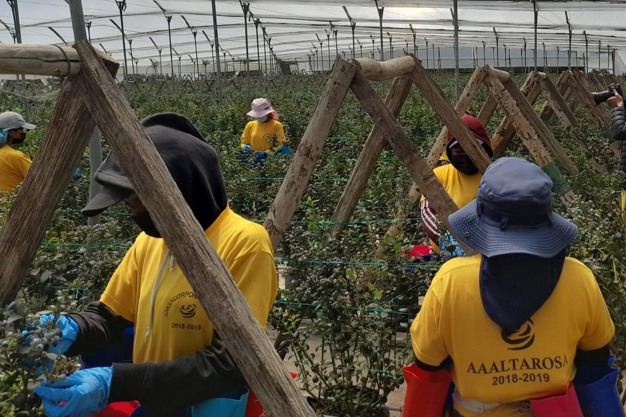The global blueberry market continues to expand rapidly, and Ecuador is positioning itself as an emerging player with unique characteristics that differentiate it from large producers such as Peru and Chile. It still has a small acreage, but the country wants to take advantage of its exceptional climatic conditions to stand out in the competitive international landscape.
Sebastián Muñoz, general manager of Negoser GlobalForum, says in an interview that the Ecuadorian blueberry sector has grown since its beginnings in the 2015-2016 campaign, reaching 300 hectares cultivated in 2024 with varieties such as the Biloxi, Emerald, Atlas, Eureka and Matías. Ecuadorian exports have grown significantly, closing this year with 300 tons, compared to the 112 tons exported in 2023.

"The quality of our blueberries, their firmness and organoleptic characteristics allow us to compete in the most demanding markets, such as the United States and Europe. We've even had some successful pilot shipments to Asia," says Muñoz.
Ecuador has a strategic advantage: its capacity to produce blueberries all year round thanks to the climatic diversity between its Andean and coastal regions; however, the main challenge lies in its limited production volume, which is insufficient to meet the growing global demand. "Our challenge is to expand the acreage and encourage investment in this sector, both from local and international producers, in order to reach a medium-term target of at least 1,000 cultivated hectares," says Muñoz.

Internationally, the country is making progress in opening up new markets. Phytosanitary protocols are already in place in more than 30 countries, and negotiations are underway with China, so Ecuadorian blueberries are gaining ground as a premium option aimed at niche markets that appreciate its quality.
The blueberry sector is not only contributing to diversifying Ecuador's agro-export supply, traditionally dominated by products such as bananas and cocoa, but is also having a positive impact on local communities. According to Muñoz, women represent between 80% and 90% of the labor force working with the crops, thereby promoting inclusive economic development in rural areas. Also, in 2024, exports generated more than one million dollars, so blueberries are consolidating as a key product for the Ecuadorian economy.

"With average FOB prices of 5 to 6 dollars per kilo, Ecuadorian blueberries are profitable for producers, who are betting on advanced technologies such as technified irrigation systems and improved genetic material," says Muñoz. "These investments, together with price stability in local and international markets, ensure a promising future for the sector."

Ecuador is facing the challenges of global trade with optimism, confident that the quality of its fruit and its year-round production capacity will position it as a key player in the international blueberry market.
Aiming for the consolidation of blueberry cultivation in the country, striving to attract new investors and expand its export supply, Quito hosted the second edition of the International Blueberry Congress, organized by Negoser Global under its GlobalForum brand. The event brought together nearly 200 participants, including producers, technicians, academics and investors, and was structured around three key themes:
- Keynote conferences where specialists from Mexico, Chile and Ecuador addressed topics on cultivation, marketing and applied technologies.
- A trade show in which companies from the sector presented innovations in inputs, plants and technology.
- A networking space to generate opportunities for collaboration between producers, entrepreneurs and investors interested in this growing industry.
"This kind of meetings are not only strengthening the position of the Ecuadorian blueberry sector, but also encouraging collaboration and the sustained growth of the industry," says Muñoz.
For more information:
Sebastián Muñoz
Negoser GlobalForum
Quito, Ecuador
Tel.: +593 2 2277 792
Tel.: +593 9 8224 1584
sebastian@negoserglobal.com
www.globalforum.com.ec
